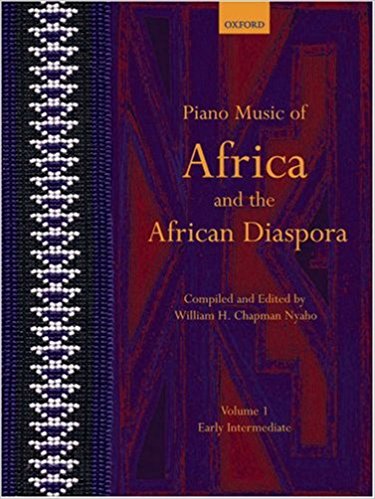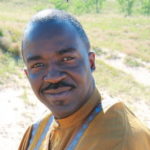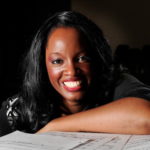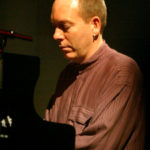 Statistically speaking, our worshipping community at UUCV is overwhelmingly, and often exclusively, White. And yet every week a representative of our board welcomes us into an “intentionally diverse religious community.”
Statistically speaking, our worshipping community at UUCV is overwhelmingly, and often exclusively, White. And yet every week a representative of our board welcomes us into an “intentionally diverse religious community.”
Part of our intentional diversity, of course, is the inclusion of music from non-White traditions—our “teal hymnal” in particular was an effort by the Unitarian Universalist Association (whose facial diversity in this country is not much greater than that of Boiling Springs, PA) to broaden and deepen the cultural roots of our musical repertory—and local UU music directors (yours included!) work hard at selecting service music, special music, and choral repertory from diverse traditions, composers, and arrangers.
One of the most challenging aspects of this “push,” for me, is that much of the “world music” that is available for purchase, even today, is folk music of various non-White traditions that has been adapted, arranged, and marketed by White people. The UUA and UU Musicians’ Network are only now beginning to recognize that part of our commitment to diversity must mean looking beyond the easy answers: seeking and requesting and investing in music that allows non-White musicians and cultures to tell their own musical stories with their own voices.
 The piano music I shared this past Sunday was credited in the bulletin to William H. Chapman Nyaho (nyaho.com), a Ghana native who studies, teaches about, and advocates music by composers of Africa and the African Diaspora. Nyaho did edit the collection from which those pieces were taken, and is a musicologist and pianist of note in his own right, but I fell short of my goals in giving full credit to the source of these wonderful pieces.
The piano music I shared this past Sunday was credited in the bulletin to William H. Chapman Nyaho (nyaho.com), a Ghana native who studies, teaches about, and advocates music by composers of Africa and the African Diaspora. Nyaho did edit the collection from which those pieces were taken, and is a musicologist and pianist of note in his own right, but I fell short of my goals in giving full credit to the source of these wonderful pieces.
 “Dusk,” which I played during our Joys & Sorrows ritual, originally appeared in a collection of piano works by Nkeiru Okoye (nkeiruokoye.com) called African Sketches. Born in New York to an African-American mother and a Nigerian father, Okoye spent her early childhood traveling between Nigeria and the US. “Dusk” was written after the passing of Noel DaCosta, Okoye’s mentor and friend; in the piece Okoye attempts to reflect the soulful, reflective spirituality of her departed teacher. Among Okoye’s large and diverse body of other works are “Invitation to a Die-In” (a “sung story” for African-American baritone and orchestra that was commissioned in memory of Trayvon Martin), We’ve Got our Eye on You (a “Monty-Python-meets-Gilbert-and-Sullivan” interpretation of a Greek myth), and Harriet Tubman: When I Crossed That Line to Freedom, a two-act theatrical work that has been favorably compared to Porgy and Bess.
“Dusk,” which I played during our Joys & Sorrows ritual, originally appeared in a collection of piano works by Nkeiru Okoye (nkeiruokoye.com) called African Sketches. Born in New York to an African-American mother and a Nigerian father, Okoye spent her early childhood traveling between Nigeria and the US. “Dusk” was written after the passing of Noel DaCosta, Okoye’s mentor and friend; in the piece Okoye attempts to reflect the soulful, reflective spirituality of her departed teacher. Among Okoye’s large and diverse body of other works are “Invitation to a Die-In” (a “sung story” for African-American baritone and orchestra that was commissioned in memory of Trayvon Martin), We’ve Got our Eye on You (a “Monty-Python-meets-Gilbert-and-Sullivan” interpretation of a Greek myth), and Harriet Tubman: When I Crossed That Line to Freedom, a two-act theatrical work that has been favorably compared to Porgy and Bess.
 Sunday’s offertory was “Kwela No. 1″—a Kwela being a Zulu piece for pennywhistle that serves as an invitation to dance—by Isak Roux (isak-roux.com). Born in South Africa, Roux was forced to flee from South Africa to Germany by the local political tensions of the 1980’s, but his close cooperation with African musical legends such as Jake Lerole, Joseph Shabalala, and Ladysmith Black Mambazo, as well as his dedication to and appreciation for the cosmopolitan nature of African folk “township music,” underscore his integrity as a worker of cultural reconciliation, whose music intentionally, accountably, and powerfully bridges African and European musical traditions.
Sunday’s offertory was “Kwela No. 1″—a Kwela being a Zulu piece for pennywhistle that serves as an invitation to dance—by Isak Roux (isak-roux.com). Born in South Africa, Roux was forced to flee from South Africa to Germany by the local political tensions of the 1980’s, but his close cooperation with African musical legends such as Jake Lerole, Joseph Shabalala, and Ladysmith Black Mambazo, as well as his dedication to and appreciation for the cosmopolitan nature of African folk “township music,” underscore his integrity as a worker of cultural reconciliation, whose music intentionally, accountably, and powerfully bridges African and European musical traditions.
As we continue to work together intentionally to broaden the diversity of our faith community, I hope we can continue to encourage one another to look past surface-level markers of diversity, to be less than satisfied with easy answers, and to work to shift power from the hands of people of privilege toward the oppressed communities that have struggled for generations to be heard. The wisdom, experience, and insights we gain from this process are absolutely invaluable.




